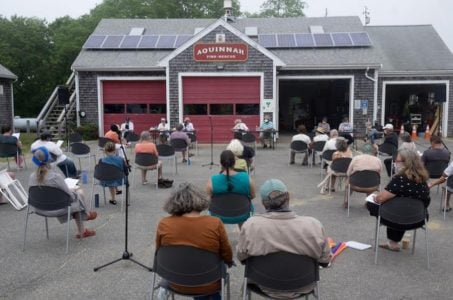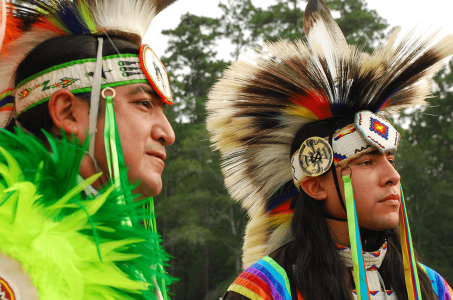Justice Ginsburg’s Mixed Legacy on Gambling Cases Weighed by Legal Experts
Posted on: September 23, 2020, 12:37h.
Last updated on: September 23, 2020, 10:30h.
Gaming and tribal law attorneys say US Supreme Court Justice Ruth Bader Ginsburg leaves a mixed record on legal decisions related to commercial or Native American casinos. She passed away on Friday after 27 years on the high court.

Notably, she was one of three dissenting justices in Murphy v. National Collegiate Athletic Association, the 6-3 ruling in 2018. That decision led to the striking down of the Professional and Amateur Sports Protection Act (PASPA).
When supporting the minority opinion in that case, Ginsburg was joined by Justices Stephen Breyer and Sonia Sotomayor. They believed that parts of PASPA could be saved.
The Murphy case was just one of 11 gambling-related decisions issued by the high court while Ginsburg was a justice between 1993 and her recent death, according to Robert Jarvis, a professor at Nova Southeastern University’s Shepard Broad College of Law.
Based on her votes in these cases, I think one would be hard-pressed to say she either was ‘for’ or ‘against’ gambling,” Jarvis told Casino.org. “Instead, I think, as in other areas, Justice Ginsburg took the cases as they came and sought to apply a common-sense reading to the Constitution.”
Ginsburg “clearly was willing to allow legal gambling (e.g., Greater New Orleans, Federal Maritime Commission), recognized that the federal government could make gambling policy as it saw fit (e.g., Seminole Tribe, Murphy), and appreciated that there was a delicate balance to be struck between states and tribes when it came to Indian gambling (e.g., Inyo, Bay Mills),” Jarvis continued.
Tribal Casino Rulings
Ginsburg’s “rulings on issues affecting Indian tribes were a mixed bag,” said Rory Dilweg, an attorney with Ocotillo Law & Policy Partners who specializes in tribal law and gaming,” to Casino.org.
“She showed a general opposition to sovereign immunity, whether asserted by Indian tribes, states, or the federal government.” He added that while Ginsburg “was on the side of equal rights for women, minorities, and the oppressed, she was not a reliable friend to Indian Country while serving on the Supreme Court.”
Gary Pitchlynn, another tribal law attorney who also teaches at the University of Oklahoma’s College of Law, told Casino.org Ginsburg “was not so much a friend or adversary of tribes and their legal issues, although she was on the wrong side of the Sherrill case that serves to invent new limitations on the rights of tribes to reclaim lands wrongly taken….”
Future Gaming Law Issues
There are three casino-related issues likely to be addressed by the Supreme Court in the near future. One is sports betting, “as states jump into the void created by the jettisoning of PASPA,” Jarvis said.
Another is tribal gambling. “After 30 years, there are still multiple issues to be resolved under IGRA [the Indian Gaming Regulatory Act]. Most have to do with where Indian casinos can be built,” Jarvis added.
The third relates to online gambling. That “continues to grow in popularity, especially during COVID-19, which has caused many shut-in Americans to discover online gambling, and which currently has a completely unworkable legislative regime regulating it, i.e., the Unlawful Internet Gambling Enforcement Act of 2006,” Jarvis said.
Barrett Sympathetic to Casino Interests
President Donald Trump says he will nominate his pick to replace Ginsburg on Saturday, despite opposition from Democratic and a few Republican Senators.
The current front-runner, as reported by Casino.org, is Amy Coney Barrett, a judge on the Chicago-based US Court of Appeals for the Seventh Circuit. She shares much of her judicial philosophy with the late Supreme Court Justice Antonin Scalia, for whom she clerked.
Other names on the shortlist are “mere sops to various other groups,” Jarvis said. For instance, federal appeals court Judge Barbara Lagoa is “being floated as a sop to Cuban-Americans in Florida,” Jarvis added.
As for who Justice Ginsburg’s successor will be, my money is on Amy Coney Barrett,” Jarvis predicted. “I would be shocked if Barrett did not get the appointment.”
“Trump indicated that he was ‘saving’ her for Ginsburg’s seat, and I see no reason to think Trump will deviate from his statement,” Jarvis added. “Barrett is a protege, of course, of Justice Antonin Scalia, so I would expect her to be very pro-business and therefore generally supportive of casino interests.”
Related News Articles
Most Popular
Mirage Las Vegas Demolition to Start Next Week, Atrium a Goner
Where All the Mirage Relics Will Go
Most Commented
-
Bally’s Facing Five Months of Daily Demolition for Chicago Casino
— June 18, 2024 — 12 Comments -
Chicago Pension Mess Highlights Need for Bally’s Casino
— July 2, 2024 — 5 Comments
















No comments yet